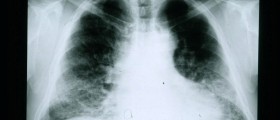
Pulmonary hypertensionand the main facts
Pulmonary hypertension is the condition in which high bloodpressure affects pulmonary arteries (the ones located in lungs) and those thatare at the right side of the heart. This can happen when tiny lung arteries areeither narrowed, or blocked, though it can also happen when they are damagedfor some reason. In such cases, the blood cannot flow through the lungs regularly which further leads to the increased pressure in the arteries and lungs, and tothe weakening of the heart muscle, or even complete failure because when under such pressure, it has to pump the blood with more efforts.
Pulmonary hypertension cannot be cured, but there are severalmethods of treatment and they are all focused on relieving the symptoms, in order to improve the quality of patient's life in a positive way. Most commonly suggested are variousmedications such as those that broaden the narrowed blood vessels or preventtheir narrowing in the first place, anticoagulants and diuretics, though insome cases, oxygen therapy may be recommended as well. Surgeries arethe last resort, and they are suggested only in cases when medicines do not help.Atrial septostomy and lung transplantation are available options in such cases.
The fact is that the symptoms of this disease do not have toshow up until the disease is developed and in an advanced stage, which willonly make the treatment longer or more difficult. It is advisable to visit thedoctor as soon as the first signs are noticed, and they may include dyspnea orshortness of breath, pain or pressure in the chest, heart palpitations,swelling in ankles and legs, dizziness, and an indicator may also be cyanosis,or bluish color of lips and skin.
Possible complicationsof pulmonary hypertension
As for the possible complications, when it comes topulmonary hypertension, there is a number of the serious ones. Cor pulmonale, orthe failure of the right side of the heart, happens when the chamber of rightventricle is enlarged due to the increased amount of blood that it has to hold,and the walls are thickened. Sooner or later, this extra strain will lead to thefailure of the right ventricle. Arrhythmia or irregular heartbeat is anothercomplication, which may even be fatal, and the same applies to bleeding in thelungs which can be indicated through coughing up blood. Blood clots are verylikely to occur in people with pulmonary hypertension, and they may lead toserious, or sometimes even fatal, consequences.

















Your thoughts on this
Loading...